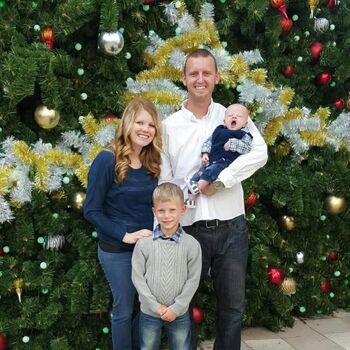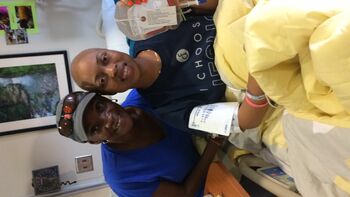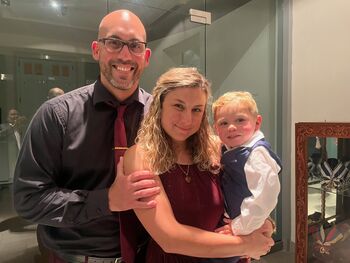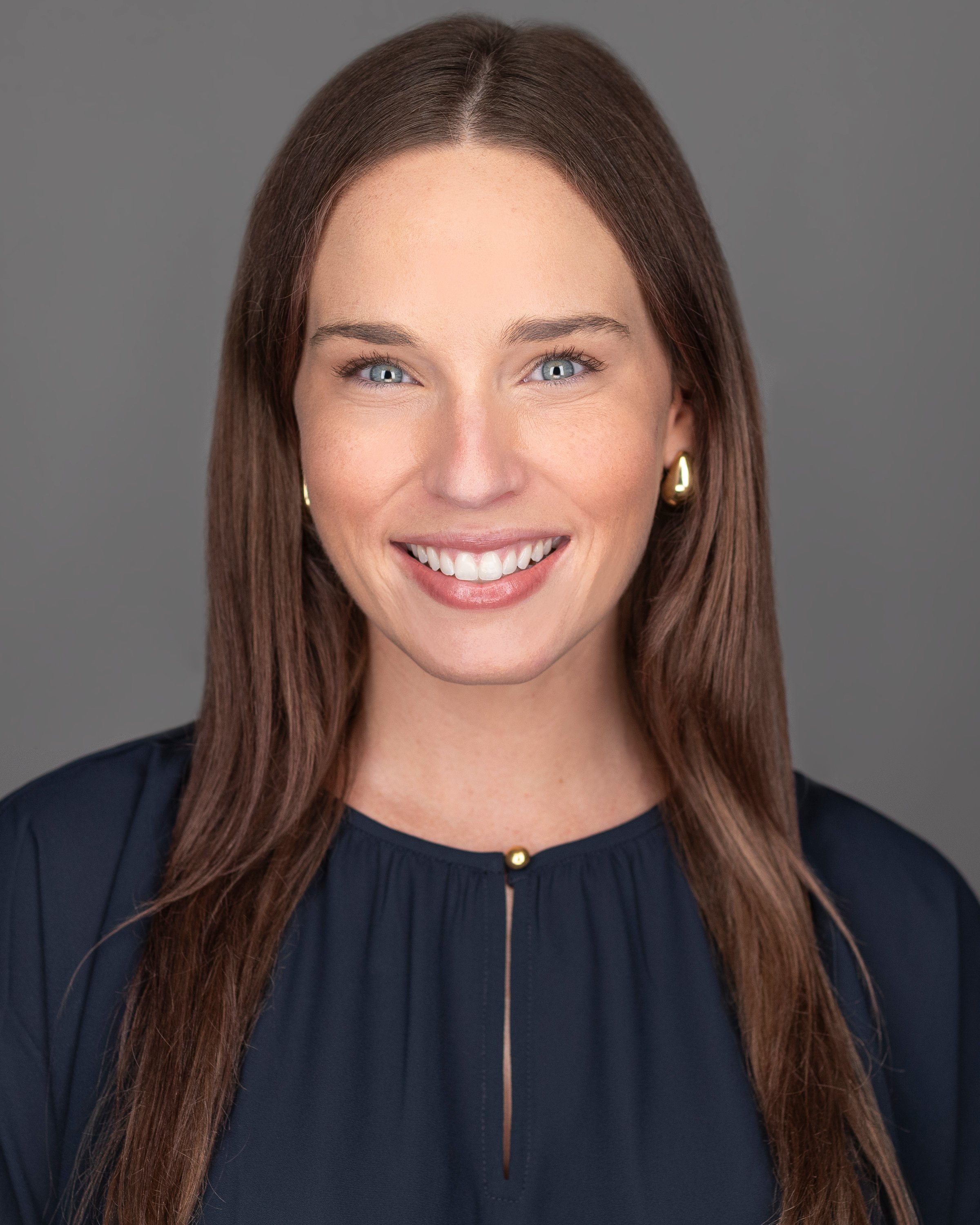The Importance of Fertility Options After a Cancer Diagnosis
Alex Dojcinovski was 24 when he was diagnosed with stage 4 Hodgkin lymphoma. The life-altering news came while his wife was 40 weeks pregnant.
One of the many conversations Dojcinovski had before starting treatment was about fertility preservation.
After receiving treatment at Moffitt, Alex Dojcinovski took a job working in the Cell Therapies Core in hopes of helping others facing the disease.
Certain cancer treatments can impact a person’s reproductive ability. The risk of permanent infertility increases with higher doses of chemotherapy and radiation therapy.
At the time, fertility preservation was an option Dojcinovski decided not to undergo. “My priority was not to delay getting started on treatment,” he said. “At that point I didn’t even know how old I was going to live to be.”
Unlike Dojcinovski, Amanda Brunson wasn’t approached about fertility preservation options when she was diagnosed with acute lymphoblastic leukemia at 21. Before being treated at Moffitt Cancer Center, Brunson received treatment at a hospital in Orlando.
“The discussion right away was to go into treatment immediately,” Brunson said. “After already starting treatment, I thought about my future of having kids. Through the process, I started to find side effects I didn’t even know existed until I ran into them.”
Now, Brunson, 36, is an ambassador with Moffitt’s Adolescent & Young Adult (AYA) Program and is also a peer advisor with Moffitt’s Patient and Family Advisory Council. Dojcinovski, 34, works in the center’s Cell Therapies Core. They both share their own personal journeys with young patients in hopes of helping them make the right decisions for their future.
In 2015, Amanda Brunson received a bone marrow transplant from an unrelated donor who was a 100% match.
“Despite how you may feel in the moment or what the circumstances are at the time, fertility preservation is something to really consider,” Dojcinovski said. “After everything, I felt like I wished we still had options to have more children. My wife really wants a daughter and that’s something I can’t provide.”
As a nurse navigator working with the AYA Program, Carole Greenslade knows how difficult it can be for patients to discuss fertility. She says it is a top priority for Moffitt specialists to educate all patients of child-bearing age about the risk of infertility associated with cancer treatments.
“Patients can be caught off guard by the need to decide prior to treatment if they want to preserve,” Greenslade said. “It is often shocking and another blow to their already heavy cancer diagnosis. Emotionally managing all of this can be very challenging. We have found that patients who have pre-treatment information shared with them tend to psychologically do better in survivorship, whether they decide to preserve or not. This has to do with them being able to make the decision for themselves versus discovering they are infertile by happenstance when trying to start a family.”
Moffitt collaborates with three local fertility clinics to assist patients with fertility preservation. Patients who meet eligibility requirements for financial assistance may qualify for Moffitt’s Fertility Fund, which helps offset fertility preservation costs for both men and women. If eligible patients choose to pursue the Fertility Fund, they can work with one of these clinics. However, if a patient is not eligible or decides not to utilize the fund, they have the option to identify a reproductive endocrinologist in the community independently.
Joel Santos Gonzalez, now 36, is a Moffitt patient who decided to undergo fertility preservation when he was diagnosed with Hodgkin lymphoma in 2017. A few years later, his wife became pregnant using IVF, a type of medical procedure that helps individuals and couples get pregnant. Santos Gonzalez was dealing with his second relapse at the time.
Joel Santos Gonzalez and his wife call their son their miracle boy.
“I had to deal with fears like what if I die before he is born, or what if I die when he’s a baby,” Santos Gonzalez said. “When he was right there in front of me, it was really powerful. I was like, oh my gosh, it’s really you and that feeling has continued every day since.”
Santos Gonzalez is now in remission and his son is 3 years old. Their family is now considering having another baby in the future.
“Fertility preservation is something easy to do whether you know you want to have children or not,” Santos Gonzalez said. “Whereas if you are not presented with the question before treatment and you change your mind and decide you want kids, you don’t really have the opportunity to go back.”







